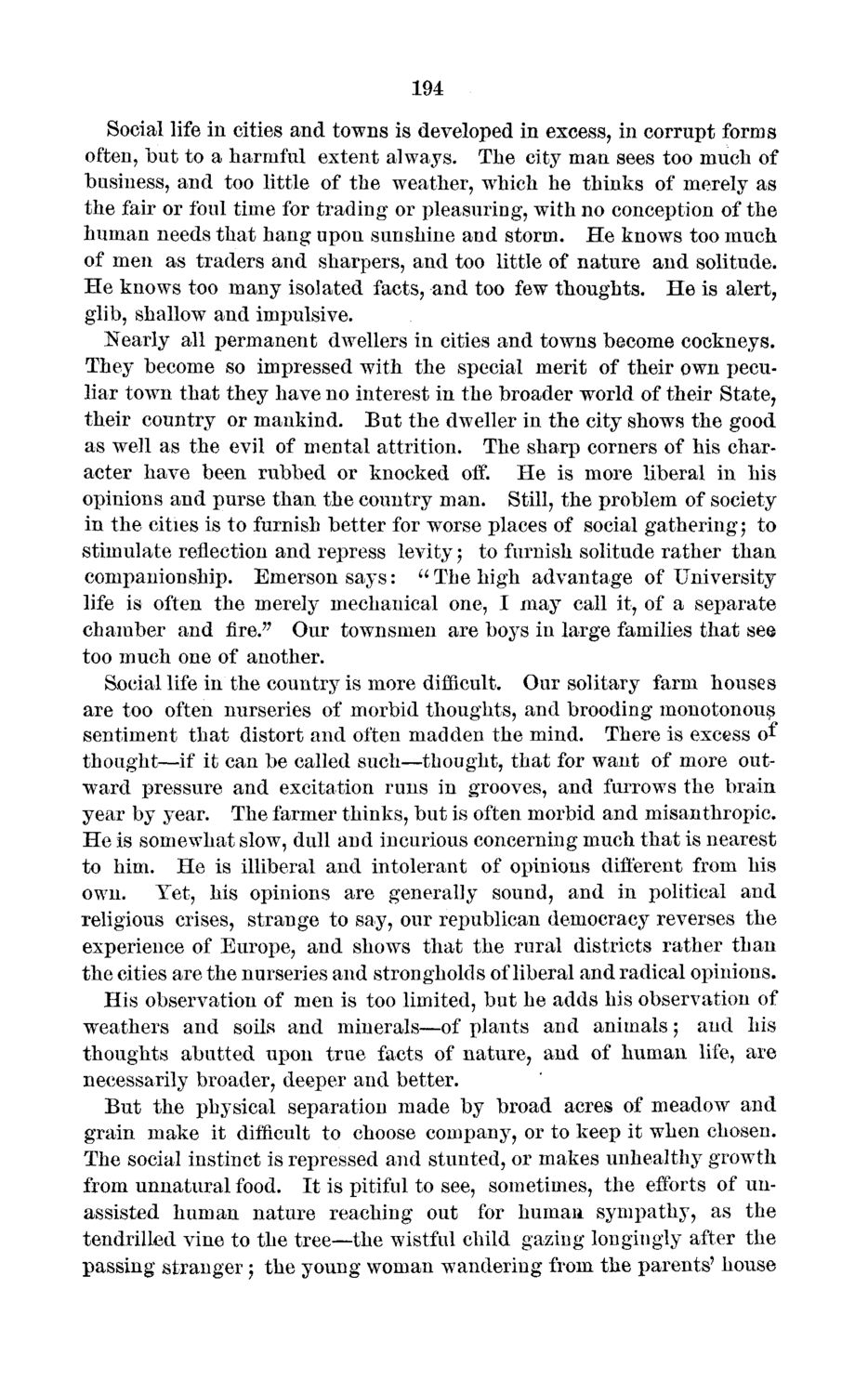| |
| |
Caption: Board of Trustees Minutes - 1873
This is a reduced-resolution page image for fast online browsing.

EXTRACTED TEXT FROM PAGE:
194 Social life in cities and towns is developed in excess, in corrupt forms often, but to a harmful extent always. The city man sees too much of business, and too little of the weather, which he thinks of merely as the fair or foul time for trading or pleasuring, with no conception of the human needs that hang upon sunshine and storm. He knows too much of men as traders and sharpers, and too little of nature and solitude. He knows too many isolated facts, and too few thoughts. He is alert, glib, shallow and impulsive. Nearly all permanent dwellers in cities and towns become cockneys. They become so impressed with the special merit of their own peculiar town that they have no interest in the broader world of their State, their country or mankind. But the dweller in the city shows the good as well as the evil of mental attrition. The sharp corners of his character have been rubbed or knocked off. He is more liberal in his opinions and purse than the country man. Still, the problem of society in the cities is to furnish better for worse places of social gathering; to stimulate reflection and repress levity; to furnish solitude rather than companionship. Emerson says: " The high advantage of University life is often the merely mechanical one, I may call it, of a separate chamber and fire." Our townsmen are boys in large families that see too much one of another. Social life in the country is more difficult. Our solitary farm houses are too often nurseries of morbid thoughts, and brooding monotonous sentiment that distort and often madden the mind. There is excess o* thought—if it can be called such—thought, that for want of more outward pressure and excitation runs in grooves, and furrows the brain year by year. The farmer thinks, but is often morbid and misanthropic. He is somewhat slow, dull and incurious concerning much that is nearest to him. He is illiberal and intolerant of opinions different from his own. Yet, his opinions are generally sound, and in political and religious crises, strange to say, our republican democracy reverses the experience of Europe, and shows that the rural districts rather than the cities are the nurseries and strongholds of liberal and radical opinions. His observation of men is too limited, but he adds his observation of weathers and soils and minerals—of plants and animals; and his thoughts abutted upon true facts of nature, and of human life, are necessarily broader, deeper and better. But the physical separation made by broad acres of meadow and grain make it difficult to choose company, or to keep it when chosen. The social instinct is repressed and stunted, or makes unhealthy growth from unnatural food. It is pitiful to see, sometimes, the efforts of unassisted human nature reaching out for human sympathy, as the tendrilled vine to the tree—the wistful child gazing longingly after the passing stranger; the young woman wandering from the parents' house
| |